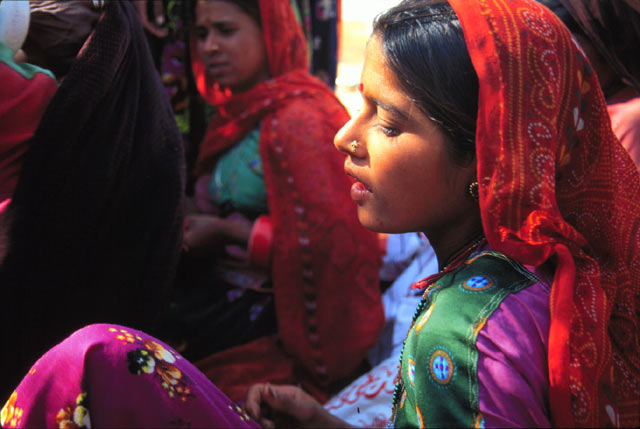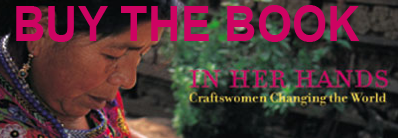Mankorba wears glasses that she obtained
through The Self Employed Women's Association and a red print sari that
she purchased with income from her embroidery. Having completed the second
grade, she is the only woman in the village who has attended school.
"What about you," Mona challenges. "Do you want to go back to school?
Women are not well educated here; that is why all of you are in this position."
Mankorba draws herself taller and her chin goes up in warning. Her words
are: "We are here talking with you. We have come out. This is a great
achievement."
Later, Mona (director of SEWA's craft operations) explains what "coming
out" means here. "Traditionally, married women in their caste cannot even
go outside their houses to fetch water; if a woman wants water, she has
to ask her son or husband to get it. When strangers come, women stay inside;
neither they nor their husbands talk to strangers.
We ask SEWA Vice President Lalita Krishnaswami in what ways SEWA women have been affected by greater financial independence. "After a while, very gradually, the women start feeling confident. They get a little respect from their family. The children begin to view their mothers differently. Domestic violence can be reduced. Everywhere, economic stability is the major factor that lowers birth rates: if extreme poverty is alleviated, families do not need so many children to earn money. Each change creates new possibilities for change."


